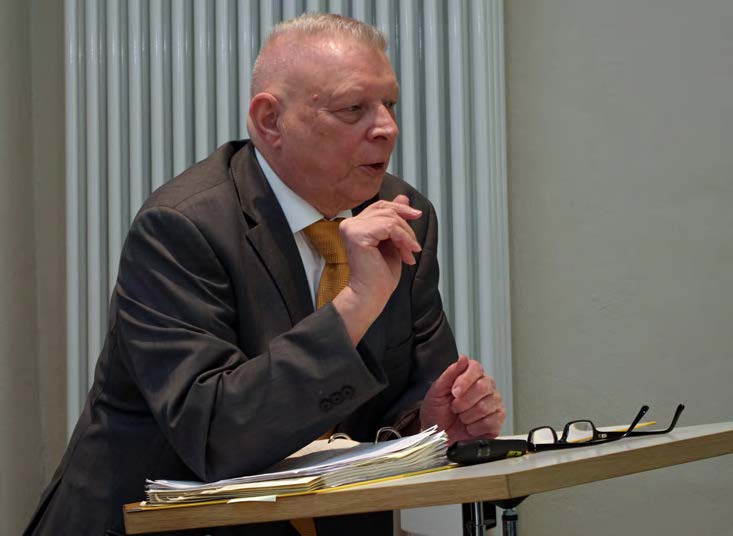German Officers’ Role in Armenian Genocide Explored
Jun/04/2018 Archived in:Armenian Genocide

By Muriek Mirak-Weissbach – Special to the Mirror-Spectator
POTSDAM, Germany — Retired Brigadier General Eckhard Lisec (photo) delivered a lecture at the Lepsius House in Potsdam on May 17, on “The Armenian Genocide in World War I — German Officers Involved?” At the outset, Lisec made clear that there was no doubt that this was genocide. then he moved to the issue of the role of Germany, allied to the Ottomans.
# Drawing on material from his recent book on this theme, he presented a differentiated picture of the attitudes and behavior of the German Military personnel engaged in the war effort. He concentrated on single individuals: Liman von Sanders, Colmar von der Goltz and others. With his privileged insight as a military man with 50 years of experience, Lisec developed his insights into the issue of military ethics facing soldiers and officers. Where are the limits to their obedience to their own officers? And how did they relate to their superiors in a foreign army or coalition partner?
Lisec used charts from his book to show the chain of command, whereby the Germans, like Bronsart von Schellendorf (Chief of General Staff), Admiral Wilhelm Souchon (Fleet Commander) and Admiral Guido von Usedom (Inspector General of the Coastal Fortifications) were under War Minister Enver Pasha. Although Liman von Sanders had a special role, he had no direct influence on Schellendorf, Souchon or Usedom. Regarding the deportations, Lisec said they could not have come on the initiative of Schellendorf, because he was not in a position to order them, but at most implemented the orders.
The audience, which included students from the Potsdam University, listened with rapt attention to stories he told from his personal experience in Turkey. From 2002 to 2005, he was Assistant Chief of Staff Support of the NATO Rapid deployable Corps in Turkey, stationed in Istanbul.

